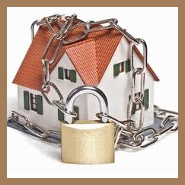I heard that people wanting to refinance their mortgage are no longer penalised with exit fees, making it easier to go elsewhere for a cheaper interest rate.
I have a $400,000 fixed-rate mortgage for three years at 7.5%pa, and interest rates are now much lower. I have one year to go before the fixed rate ends but would like to refinance to a lower rate now.
Answer
There are two separate issues here.
1. Changing mortgage lenders
All variable-rate mortgages taken out from 1 July 2011 have no exit fee.
However, if your home loan interest rate was established before this date then you may still have significant exit fees. It’s best to check with your lender how much your break fee would be before you decide to move your mortgage to another lender.
Every home loan also has a small discharge fee, typically $350 per property, to cover the cost of the lender removing the mortgage that has been registered on the title of your property. This fee is reasonable as it is an actual cost incurred by the bank.
2. Breaking a fixed-rate mortgage
Beware of breaking a fixed-rate mortgage when trying to find a cheaper lender. This cost applies regardless of when you took out your mortgage.
When your loan settled, the lender factored in a profit over three years. This profit is the difference between what they bought your funds at and the 7.5%pa they’re charging you during this time. If you exit early, they miss out on that profit, so they charge a break cost.
Break costs can also be charged when you make extra repayments on a fixed rate loan. Most lenders will allow you to pay a small amount off your loan each year without being charged, however if you go over this amount or pay off the loan entirely then you will be charged the break fee.
Banks are not very good at disclosing their break fees or how they will be calculated, so be sure to check with them before you consider refinancing.



